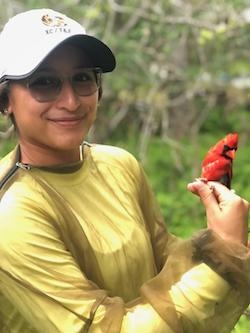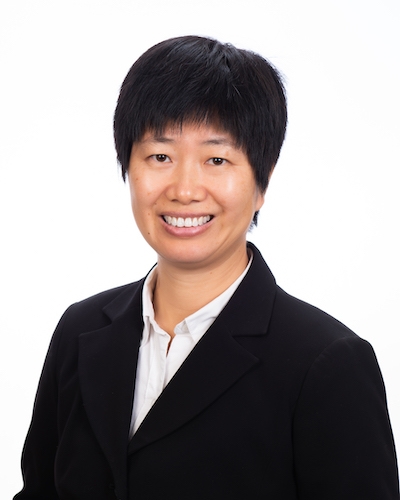SFA University
April 11, 2022 — President Scott Gordon and the university have mutually agreed that it is in the best interest of both parties for the employment relationship to end. The Board has appointed Dr. Steve Westbrook to serve as SFA’s interim president until a permanent president assumes the office.
The Board of Regents wishes to thank Dr. Gordon for his services and to acknowledge the accomplishments of his administration, including but not limited to, the University’s success in navigating the disruptions of the coronavirus pandemic, its establishment of a Distinguished High School program, its progress towards the $100 Million comprehensive capital campaign, its focus on engaging alumni and its enhanced relations with community colleges and with both local and state businesses and political leaders.
SFA’s new interim president, Dr. Steve Westbrook, was first employed by the university in 1981, served as vice president for university affairs from 2007 to 2020 and was the university’s interim president following the death of former president Baker Pattillo until Dr. Gordon’s installation as university president. Since his retirement, Dr. Westbrook has continued to serve as an adjunct faculty member and in 2021 was designated by the Board as Vice President for University Affairs Emeritus. He holds bachelor's and master's degrees from SFA and earned a doctorate in higher education leadership from Texas A&M Commerce.

Alejandra Martinez, SFA forestry graduate student, holding a Northern cardinal captured during her field work.
April 7, 2022 — The arrival of spring in Texas heralds the return of diverse migratory species, such as the ruby-throated hummingbird, purple martin, chuck-will’s-widow and yellow-billed cuckoo, just to name a few. Located within North America’s central migratory flyway, Texas provides a diversity of habitat critical to the survival of millions of birds on their biennial journey to breeding or wintering habitats.
As welcome as these species are to the state, Texas is not immune to data indicating a significant loss in avian abundance and diversity during the past 50 years.
“I know for me, not just being a student, but also being a birder for about 14 years, I’ve noticed a decline in birds,” said Eamonn Thurmond, who is pursuing a Master of Science in Forestry at Stephen F. Austin State University. “When the 2019 Rosenburg paper came out, it seemed par for the course. It didn’t surprise us, but it was very much disappointing.”
The 2019 paper Thurmond is referring to was a collaborative research effort across nine separate universities, governmental agencies and organizations that found an approximate net loss of roughly 3 billion birds since 1970. Currently, Thurmond is one of three SFA forestry graduate students conducting research to continue to shed light on current avian population trends, as well as land management practices that benefit these species.
Thanks to a grant from the National Fish and Wildlife Foundation, Thurmond, under the direction of Dr. Rebecca Kidd, SFA associate professor of forestry, will analyze 150 study sites within bottomland hardwood forests across Louisiana, Arkansas and Mississippi. These sites, located within the Mississippi alluvial valley, are part of a national effort to restore bottomland hardwood forest ecosystems that have been drastically altered or lost due to anthropogenic, or human-based activities.
Through initiatives such as the Wetland Reserve Program, a voluntary program assisting landowners in protecting, restoring and enhancing wetlands and riverine ecosystems, progress has been made in restoring critical bottomland hardwood forest habitat. On these sites, active forest management practices, such as invasive species control, thinning and regeneration harvests, complement naturally occurring disturbances, such as flooding and falling trees.
“The goal of this research is to see how avian communities are changing or responding over time to the intensity of forest management from the early successional stage to the ideal, mature forest stage,” Thurmond said.
In order to document these changes, Thurmond will deploy automated sound recording units at 75 different forest sites for two summers. These waterproof, compact recording units can be programmed to record at specific times of the day for set lengths of time and later analyzed to discern which species are utilizing the study site.
“On one of my recordings, I started laughing because I got 11 different species vocalizing within the first 20 seconds of the recording,” Thurmond said with a smile. “The fact you can get 11 species within that short time should emphasize how many birds are there, and it’s a good metric for looking at communities present.”
Thurmond explained that complexity within the vertical forest structure is typically best for forest birds because it provides a variety of resources for multiple species. His findings will help guide foresters in making future management decisions to benefit songbirds within these restored bottomland forests.
Closer to home, forestry graduate student Liam Wolff is investigating how forest conditions affect an avian species recognized by the Texas Parks and Wildlife Department as a species of conservation concern. His research, directed by Dr. I-Kuai Hung, Lacy H. Hunt Professor of geospatial sciences at SFA, is supported in part by the State and Tribal Wildlife Grants Program.
Bachman’s sparrows are habitat specialists that rely on open pine woodlands with grassy understories like those historically found across East Texas. According to the Cornell Lab of Ornithology, populations of this small, brown songbird have declined by 76% during a span of 44 years. This is due in large part to land conversion, fire suppression and other alterations to native forest composition.
“The strongest argument for the protection of this species is that it is a bioindicator and occurs in the same habitat as the endangered red-cockaded woodpecker,” Wolff said. “So, if you’re conserving this species, there’s a whole other slew of species you’re also protecting — and not just birds. There are some plants associated with these habitat types, and in Eastern populations, you have the federally threatened gopher tortoises and Louisiana pine snakes.”
Wolff’s study sites are located across public and private lands throughout the post oak savannah and piney woods ecoregions of East Texas.
During multiple seasons, Wolff will examine the spatial and temporal factors that influence the occupancy, phenology and detection of Bachman’s sparrows in East Texas. This includes canopy cover, forest basal area, percent ground cover of grasses, leaf litter and more.
“These data can inform agencies and land managers on habitat preferences of Bachman’s sparrows, as well as occupancy and distribution of this species of greatest conservation need in Texas,” Wolff said. “We’re also looking at a regional-scale predictor of how far a surveyed plot is from a source population. What that can imply is whether habitat fragmentation is affecting whether or not these birds are able to move between certain areas.”
For example, Wolff said there are a number of restored habitats in East Texas capable of supporting the Bachman’s sparrow, but the species has not been detected.
Automated sound recording units are again key to detecting the presence or absence of the Bachman’s sparrows. Thankfully, Wolff and other students have access to software to assist in sorting this massive amount of audio.
“In addition to the audio, the software represents sound visually,” Wolff said. “If you familiarize yourself with the spectrogram signature of your species, you can just scan through and visually look for that signature. Fortunately, the Bachman’s sparrow signature is pretty unique.”
At the Welder Wildlife Refuge in South Texas, forestry graduate student Alejandra Martinez will analyze six years of data collected over a 12-year period through a MAPS station within a riparian woodland to determine occupancy and population trends of birds.
“The acronym stands for Monitoring Avian Productivity and Survivorship,” Martinez explained. “MAPS is one of the first resources used to collect long-term breeding data on the land bird populations of North America, including productivity indices.”
There are more than 1,300 MAPS stations across North America, and data collected at each of these stations is publicly available.
During a span of three years, Martinez, under the direction of Dr. Jessica Glasscock, SFA assistant professor of forest wildlife management, will gather comprehensive data from birds collected through mist nets as outlined by the established MAPS protocol. She will then compare her data to previous years to determine if there are any population trends or shifts occurring.
She notes that initial findings indicate a decline in common species, such as the Northern cardinal, known for its bright red feathers and expansive range across the United States.
“We ran a species rank abundance curve and ranked the top three most abundant species by year, and it was really interesting to see that the most abundant species someone can think of — this generalist species — has declined at this local scale,” Martinez said.
Additionally, Martinez will compare the effectiveness of automated sound recording units and established MAPS protocols in determining occupancy and time of detectability.
“We want to see if the recording units are more efficient because we’re not going to catch every single bird that may be present,” Martinez said. “When we’re not running our nets and collecting birds, we’re supposed to be listening to document species flying over. Hopefully, with the recording units, we can pick up a more complete population or complete community of avians in this riparian corridor.”
For more information on this and other research occurring through the Arthur Temple College of Forestry and Agriculture, visit sfasu.edu/atcofa.
Story by Sarah Fuller, outreach coordinator for Stephen F. Austin State University’s Arthur Temple College of Forestry and Agriculture. Contact information: (936) 468-1185 or fullersa@sfasu.edu.

April 1, 2022 - The School of Theatre at Stephen F. Austin State University will present William Shakespeare’s “The Taming of the Shrew” at 7:30 nightly Tuesday through Saturday, April 5 through 9, in Kennedy Auditorium on the SFA campus.
Rehearsing a scene from the play are students Maggie Jordan, Pasadena junior, as Katherina, and Daun Whaley, Texarkana junior, as Petruchio. General ticket prices are: $15, adult; $10, senior (62+); $7.50, SFA faculty/staff; $7.50, youth; $5, student. Purchase tickets at boxoffice.sfasu.edu or call (936) 468-6407.
For questions about the play, contact the School of Theatre at (936) 468-4003.

Stephen F. Austin State University’s SFA Gardens will host the monthly Theresa and Les Reeves Lecture Series at 7 p.m. April 14 in the Pineywoods Native Plant Center. Guest speaker Dr. Mengmeng Gu, professor and ornamental extension specialist for the Texas A&M AgriLife Extension Service in College Station, will present “Do We Need to Be Scared of Crape Myrtle Bark Scale?”
March 29, 2022 — Stephen F. Austin State University’s SFA Gardens will host the monthly Les and Theresa Reeves Lecture Series at 7 p.m. April 14 in the Brundrett Conservation Education Building at the Pineywoods Native Plant Center, located at 2900 Raguet St.
Dr. Mengmeng Gu, professor and ornamental extension specialist in the Department of Horticultural Sciences at Texas A&M AgriLife Extension Service in College Station, will present “Do We Need to Be Scared of Crape Myrtle Bark Scale?”
A relatively new exotic scale pest, bark scale is threatening the utility and aesthetics of crape myrtles in the urban landscapes of Texas and surrounding states. Gu, who leads the multidisciplinary, multistate effort to manage this type of bark scale, will present a brief history of the pest in Texas and surrounding areas, as well as discuss its symptoms, life cycle and extermination.
Gu earned her doctorate in plant sciences and horticulture from the University of Arkansas and worked as an assistant professor at Mississippi State University before moving to Texas in 2012. The liaison between the Texas A&M AgriLife Extension Service and the Texas Nursery and Landscape Association, Gu serves on the TNLA Education Committee and the Parks and Patio Task Force. In addition to crape myrtle bark scale, her research interests include sustainable practices in horticulture production and landscapes, such as container substrate research.
The Theresa and Les Reeves Lecture Series is held the second Thursday of each month. It is preceded by an attendee social at 6:30 p.m., and a rare plant raffle will follow the program. The lecture is free and open to the public, but donations to the Theresa and Les Reeves Lecture Series fund are always appreciated.
Parking is available at the PNPC and Raguet Elementary School, located at 2428 Raguet St.
For more information, call (936) 468-4129 or email sfagardens@sfasu.edu.
March 22, 2022 – The Swingin’ Axes and Swingin’ Aces jazz bands at Stephen F. Austin State University will present their “Swingin’ At The Brewery” fundraiser from 6 to 9 p.m. Friday, April 1, at Fredonia Brewery in downtown Nacogdoches.
Admission to the outdoor concert is free, but donations are encouraged to benefit the SFA School of Music’s jazz program, according to Dr. Deb Scott, professor of trombone and director of jazz.
“SFA Jazz has always enjoyed widespread community support, which has been essential to our program,” Scott said. “We are fortunate to have the Fredonia Brewery continuing to host us; we are very grateful.”
The Swingin’ Axes will perform Radio Head’s “Knives Out," Count Basie’s “Sweet Georgia Brown” and Dan Gailey’s “Big Al Meets the Barnyard Gals,” among other jazz favorites.
The Swingin’ Aces, directed by Dr. J.D. Salas, will play some standard selections from the swing era in addition to a few rock selections from the group Steely Dan.
Shali’s Indian Kitchen on Wheels will be on site, and the brewery’s Rebellion Pizza will be open. SFA Jazz T-shirts and other merchandise will be available for purchase.
Proceeds from the concert will help fund travel costs for both the Axes and Aces when they perform at the Wichita Jazz Festival in Kansas on April 22. The jazz bands will return home on April 23 to present the same concert at 7:30 that night in Cole Concert Hall.
The Fredonia Brewery is located at 138 N. Mound St. For additional information, call the SFA School of Music at (936) 468-4602 or the brewery at (936) 305-5125.
March 22, 2022 — Stephen F. Austin State University has been named the No. 1 Texas university of its size as a rural-serving institution.
The Alliance for Research on Regional Colleges awarded the designation to SFA, also placing it No. 11 nationally.
“Thriving rural regions require high-capacity, place-based anchor institutions,” said Jerry Kenney, program officer for education and economic opportunity for the T.L.L. Temple Foundation. “A quick glance on a map reveals the importance of SFA as the only major university located in our multi-county Deep East Texas region, an expansive, overwhelmingly rural geography.”
Kenney continues saying that “as the source of a cutting-edge rural workforce, the hub for rural innovation, and the place for pursuing big rural ideas and opportunities, a thriving East Texas, now and in the future, requires a dynamic SFA that embraces its role as a rural-serving institution.”
According to ARRC’s groundbreaking research, the research findings emphasize the important role RSIs play in providing college access to marginalized populations and underserved communities.
“RSIs are important educational access points for low-income students, adult learners, and those from marginalized racial backgrounds, and they are critical to regional economic development, as many RSIs are the largest employer in their region,” said Dr. Andrew Koricich, the project’s principal investigator and ARRC’s executive director.
While SFA serves its rural students and the surrounding rural area, Karyn Hall, SFA’s director of institutional research, maintained that the university balances serving this rural area while simultaneously serving students from metro areas.
“We’re a hybrid institution in that 90% of our students report residency within 200 miles of the university and 40% report proximity within a 100-mile radius of campus,” Hall said. “Around 50% of SFA students come from the Dallas and Houston areas and about 38% come from the East Texas area. We are rural-serving, diverse and hybrid.”
By supporting its service area in this way, SFA also is contributing to 60x30TX, a strategic plan by the Texas Higher Education Coordinating Board with several goals, Hall said. The plan seeks to ensure that 60% of Texans between the ages of 25 and 34 have a degree or certificate by 2030.
Its other goals include having at least 555,000 students complete a certificate or an associate, bachelor’s or master’s degree from a higher education institution in Texas before 2030, graduating with marketable skills and low student debt. Paired with SFA’s unique tuition rate plans and 15 to Finish initiative, which help students stay on track to graduate with less debt, the rural-serving designation is further proof of SFA’s commitment to accessible education.
“We have an expectation that we serve our region,” Hall said. “The fact that we have this national acknowledgment is really important.”
By serving the student population as a whole as well as the surrounding area, SFA is poised to continue helping the region grow and continue to develop.
Publishing their findings in an online data tool, the ARRC used five factors to score institutions during their years-long effort to identify rural-serving institutions:
- percent of institution’s home county population classified as rural
- average percent of adjacent counties’ population classified as rural
- population size of institution’s home county
- institution’s home county adjacency to a metro area
- and percent of institution’s total awards conferred in agriculture, natural resources, and parks and recreation.
ARRC is a research collaborative and resource hub with the mission of increasing appreciation for and understanding of regional colleges and their contributions to opportunity and community wellbeing. Learn more at regionalcolleges.org.

The Lumi Trio features Ruby Chia-Yun Yeh, clarinet; Dr. Minhae Lee, piano; and Daniela Diaz, violin.
March 4, 2022 – The Lumi Trio will present a program of works by living composers when the ensemble performs at 7:30 p.m. Tuesday, March 15, in Cole Concert Hall on the campus of Stephen F. Austin State University.
The trio includes Ruby Chia-Yun Yeh, clarinet; Daniela Diaz, violin; and Dr. Minhae Lee, piano. Lee recently joined the faculty of the School of Music at SFA as assistant professor of piano.
Clarinetist Yeh is a D.M.A. candidate at Michigan State University. She is the second prize winner of the International Henri Selmer Paris Clarinet Academy and Competition and the founder of the Lumi Trio in 2017. She holds degree from the National Kaohsiung Normal University, the Taipei National University of the Arts and Boston University.
Violinist Diaz serves as a member of Artistic and Educational Committees of El Sistema, a voluntary music-education program founded in Venezuela that seeks to transform children’s lives through music.
Lumi Trio works to rediscover, program and diffuse the substantial literature commissioned over the past 30 years by the legendary Verdehr Trio. Founded in 2017 and combining three distinctive musical personalities into a unique collective, Lumi Trio exhibits rarely performed 20th and 21st century pieces alongside standard repertoire.
The program includes “Portmanteau” by Stephen Lias, professor of composition at SFA, along with “Pockets of Comfort” by Michael Eaton; “Piezas Luminosas” by Gonzalo Garrido; “Solstices” by David Biedenbender; and “Compass Points” by Ricardo Lorenz.
“We are performing music by living composers, specifically Michael Eaton and Stephen Lias, who wrote music for Lumi Trio in 2021,” Lee said.
Lias’ music is regularly performed throughout the United States and abroad by soloists and ensembles. Since 2009, he has focused increasingly on his work as an adventurer-composer. His passion for wilderness and outdoor pursuits has led to a growing series of works about the national parks of the U.S. He has served as artist-in-residence at Rocky Mountain, Glacier, Denali, Glacier By, and Gates of the Arctic national parks, and has written more than 15 park-related pieces that have been premiered. His orchestral work “All the Songs that Nature Sings” was commissioned by the Boulder Philharmonic with a grant from the National Endowment for the Arts and performed at Washington D.C.’s Kennedy Center. He is the founder and leader of the annual "Composing in the Wilderness" field seminar offered by the Fairbanks Summer Arts Festival. His students have scored films, been commissioned and published, and are the recipients of regional, national and international awards.
Eaton is a young composer earning his bachelor's degree in music composition at Michigan State University. He has written and arranged for fixed media, the concert stage, musicals, commercials, marching band, jazz band and video games. He works to bolster the presence of scoring music for video games in the greater music curriculum by combining his multi-media experiences to teach classes on the subject.
Biedenbender is a composer, conductor, performer, educator and interdisciplinary collaborator. He is associate professor of composition in the College of Music at Michigan State University.
The compositions of Lorenz have garnered praise for their fiery orchestrations and rhythmic vitality as well as for raising awareness about global societal challenges that concern the composer. These impressions have earned him two Latin Grammy Award nominations and multiple commissions. He is professor and chair of the music composition area at Michigan State University
Garrido-Lecca is a composer whose works include compositions for symphonic orchestra, diverse chamber ensembles, electronic media, piano solo and voice. He has also written incidental music for theatre, film, choreographies and video art.
Tickets are $8 for adults, $6 for seniors and $3 for students and youth. To purchase tickets, call the SFA Fine Arts Box Office at (936) 468-6407 or visit finearts.sfasu.edu. For additional information, contact the SFA School of Music at (936) 468-4602.
 March 3, 2022 – Stephen F. Austin State University School of Music’s student organization Mu Phi Epsilon has provided a full-semester Music Prep scholarship for student Sabrina Flores. A violinist, Sabrina plans to attend SFA next fall as a music education major. Presenting the donation is Cole Jones, graduate student from Livingston. Organizations or individuals who wish to sponsor scholarships for students may contact Music Preparatory Division Director Alba Madrid at (936) 468-1291 or musicprep@sfasu.edu. For more information about Music Prep, visit sfamusicprep.com.
March 3, 2022 – Stephen F. Austin State University School of Music’s student organization Mu Phi Epsilon has provided a full-semester Music Prep scholarship for student Sabrina Flores. A violinist, Sabrina plans to attend SFA next fall as a music education major. Presenting the donation is Cole Jones, graduate student from Livingston. Organizations or individuals who wish to sponsor scholarships for students may contact Music Preparatory Division Director Alba Madrid at (936) 468-1291 or musicprep@sfasu.edu. For more information about Music Prep, visit sfamusicprep.com.
March 2, 2022 – The Music Preparatory Division at Stephen F. Austin State University, in partnership with the Nacogdoches Convention and Visitors Bureau, will host a Music and Arts Festival on Saturday, April 23, in downtown Nacogdoches.
The family friendly outdoor music festival is from 11 a.m. to 7 p.m. and takes place on the downtown square. It will feature student music and dance performances, local artists, exhibit booths, children’s games and more, according to Alba Madrid, director of the Music Prep program in the School of Music.
“This is an effort to unite, support and showcase the fine arts programs in our community,” Madrid said.
Local merchants can be a part of the festival by showcasing their businesses at booth spaces that will be located around the square and along Main Street and/or by donating door prizes to be given away during the festival. Event sponsorships are also available, and local food trucks will be onsite.
Proceeds will help fund, in part, two major projects, including the creation of the Shirley Watterston Piano Lab and the newly established Strings Project, Madrid said.
The Watterston Piano Lab, which will be housed in a renovated garage area at the Prep House, will provide space for SFA Music Prep to deliver affordable group piano instruction to members of the Nacogdoches and East Texas community. Classes will be offered for students of all ages (retirees, adults, teenagers, elementary) and skill levels. In addition to outreach potential, the piano lab program will also provide music majors internship opportunities to gain valuable teaching experience in conjunction with their piano pedagogy classes, and it will allow Music Prep to expand class offerings such as Kindermusik and choral programs.
“These supervised teaching opportunities fit the university's strategic plan by being a recruiting tool for college music majors seeking these types of transformative experiences as part of their academic and practical studies at SFA,” Madrid said.
Strings Project classes provide practical hands-on training for undergraduate string education majors during their college years and give children from the community the opportunity to study a stringed instrument in a group setting. Classes are offered for elementary, middle and high school students after school.
Deadline to register for festival booth spaces is March 23. For more information about sponsorships, or to register for a booth, contact Madrid at (936) 468-1291 or musicprep@sfasu.edu. For more information about Music Prep, visit sfamusicprep.com.
February 24, 2022 — Stephen F. Austin State University has announced the recipients of its inaugural Center for Applied Research and Rural Innovations grants.
The CARRI grants were created in fall 2021 as part of SFA’s infrastructure fostering innovation and entrepreneurship activity leading to a more robust and vibrant economy in SFA’s 12-county region.
“While the recipients' academic pursuits vary, they share in common the strong desire to make the world a better place through their scholarly activity,” said Dr. Lorenzo Smith, provost and vice president for academic affairs. “The CARRI grants are particularly significant because they are surgically directed toward local problems in need of local solutions. Yet, while their proposed work has a Deep East Texas focus, it is transferable to national and, in some cases, international areas of scholarly investigations. This is what makes their proposed work so impressive.”
Of the 16 proposals submitted, the CARRI Steering Committee selected 10 proposals with monies totaling slightly over $256,000. Grant recipients and their research are as follows:
Dr. Gina Fe Causin — School of Human Sciences, James I. Perkins College of Education - $20,609.44
Deep East Texas Travel and Tourism Collaborative
The COVID-19 pandemic created havoc for small businesses, which caused them to shut down and cease all economic activities, particularly in rural areas. This project will revitalize economic activities in the Deep East Texas rural communities by helping revive travel- and tourism-oriented small businesses through development of new travel packages to promote to external guests to the region. It also will improve existing travel and tourism practices and services, or strengthen and diversify the regional economy of the El Camino Real trail and routes.
Dr. Bill Forbes — Department of Anthropology, Geography and Sociology, College of Liberal and Applied Arts - $4,590
Fostering Renewable Energy Access, Efficiency, and Entrepreneurship in Deep East Texas
This project will work with regional programs to increase access, efficiency and entrepreneurship related to clean energy and energy conservation in Deep East Texas. Six graduate and undergraduate students will work with one to two faculty members and select community leaders to increase access and use of a weatherization program for low-income residents; have clean energy financing programs and a microloan small business program adopted by the Deep East Texas Council of Governments, counties or cities in the region; and create linkages between solar panel installers, weatherization contractors and students/workforce members interested in training in this field.
Dr. Jane Long — Department of Mathematics and Statistics, College of Sciences and Mathematics; JacksTeach director - $23,672
Laboratory Science Enrichment for Secondary Teachers of Deep East Texas
This project focuses on enhancing student interest in science, technology, engineering and mathematics fields through two weeklong workshops training secondary teachers to incorporate engaging, hands-on laboratory experiences in their classrooms. We will directly support teachers by providing hands-on experience with laboratory exploration activities, funding to support their participation, laboratory supplies specific to workshop activities and Continuing Professional Education credits. These efforts will expand student interest in postsecondary STEM study, prepare students for success in STEM careers, and support economic development in the Deep East Texas region by contributing to the workforce of highly trained STEM professionals.
Dr. Dan Bruton — Department of Physics, Engineering and Astronomy, College of Sciences and Mathematics - $17,363
Rural Mobility: Engineering Design of Durable Off-Road Vehicles
The primary goal of this project is to involve undergraduate engineering students in the design and construction of a small vehicle that meets design constraints set by the Society of Automotive Engineers. The SAE Baja competition requires collegiate teams to design and construct a lightweight, off-road vehicle over the course of two semesters. The engineering faculty at SFA will select approximately 20 students interested in mechanical or electrical engineering for the first cohort for this competition. This project should result in students receiving certification through the U.S. Occupational Safety and Health Administration, as well as connections to local employers seeking engineers with practical design and manufacturing experiences.
Dr. Alyx Frantzen — Department of Chemistry and Biochemistry, College of Sciences and Mathematics - $35,000
SFASU Fermentation Laboratory
The number of craft breweries and wineries in Texas has risen exponentially during the last decade to more than 430 wineries and over 300 breweries. While shown to be robust industries, they have been impacted by the pandemic as most rely on restaurant and bar sales, taprooms and tasting rooms. These industries are regulated by the U.S. Food and Drug Administration and Tobacco Tax and Trade Bureau. Both industries are required to follow mandatory labeling requirements and procedures. Much of what is found on the label is determined by beverage alcohol laboratories. The cost of testing is quite expensive; a total chemical profile for a single beer is $350 and for a single wine $175. The development of a Fermentation Laboratory at SFA can help alleviate these costs.
Sally Ann Swearingen — School of Human Sciences, Perkins College of Education - $51,218.75
Students in Action – Building communities one building at a time with “Building Jacks”
Construction management students will build tiny homes for individuals and families in need of shelter. Students will gain a greater understanding of the field while applying lessons learned in the classroom to real life projects using a unique mobile classroom. The goal is to teach and train leaders and managers in the field through hands-on projects. Construction management labs are set up to give large blocks of times to ensure students understand construction and have an opportunity to meet and get to know their clients. This innovative mobile classroom will change how construction management is being taught and provide numerous opportunities for students and clients throughout East Texas.
Dr. Sarah Straub — Department of Education Studies, Perkins College of Education - $21,900.50
Leadership Initiative for Supporting (Bilingual) Teacher Acquisition
The Leadership Initiative for Supporting (Bilingual) Teacher Acquisition is the first step in a multi-year effort to empower district bilingual coordinators across East Texas, increase the number of qualified bilingual teachers, and create a pipeline through undergraduate and graduate programs to support this growth. LISTA will work to develop a community of united and informed bilingual coordinators who will, in turn, develop a pathway for success for future bilingual educators. LISTA aligns with this mission through an investment in the quality of bilingual coordinators and future educators. Phase one will focus on needs assessments, community building and planning. Future phases will result in a successful bilingual educator pipeline.
Dr. Pamela Rogers — Department of Management and Marketing, Rusche College of Business - $8,870
Training for Manufacturing Supervisors
The purpose of this proposal is to develop a manufacturing supervisor training that could be offered through the Center for Applied Research and Rural Innovation in cooperation with the East Texas Manufacturing Alliance. Participants would be new or aspiring front-line supervisors in local manufacturing organizations.
Dr. Mary Olle — School of Human Sciences, Perkins College of Education - $34,319
A Needs Assessment of Competencies for the Restaurant Industry in Deep East Texas
SFA is seeking support for a needs assessment of competencies that will inform the development of a Bachelor of Science in hospitality administration with a focus in restaurant management. This degree program seeks to reach Texans ages 25 to 34 who have some coursework toward a degree or certificate but have not competed the degree. This program focuses on competencies and marketable skills that will prepare students to enter the workforce at a managerial level. By conducting a needs assessment, we will be able to more accurately develop a CBE program that is meeting the needs of employers in East Texas.
Dr. Anusha Shrestha — Forestry and Spatial Science, Temple College of Forestry and Agriculture - $38,697
Logging sector in Deep East Texas: Current status, issues, and future outlook
The purpose of this study will be to determine the current status of the logging sector and its economic contribution by surveying logging contractors and other industry stakeholders, and employing an economic model using IMPLAN data. The results from this study will be crucial to identify concerns and needs of the logging sector. Enhancement of this sector will ensure a continued supply of wood products to the forest products manufacturing facilities, better logging practices on forest stands ensuring appropriate management and protection of forest health, and continued employment and income for people in the region. In this project, students will learn various research methodologies and analyses and will collaborate with various forestry stakeholders.








